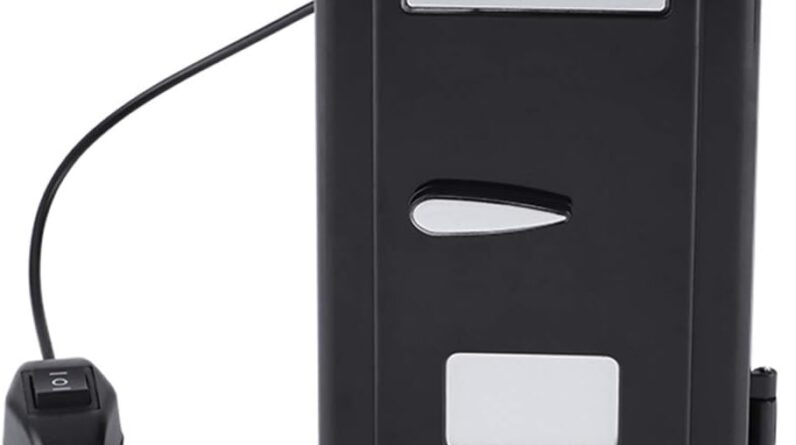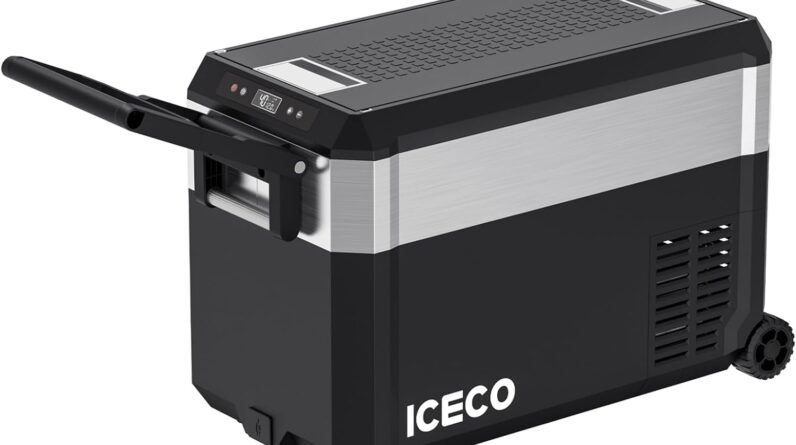
When it comes to choosing a GPS device for geocaching, it’s important to have the essential features that will ensure a successful and exciting adventure. From accurate navigation capabilities to robust battery life, there are key factors that will make your geocaching experience truly unforgettable. In this article, we will explore the essential features that you should consider when selecting a GPS device for geocaching, helping you make the perfect choice for your outdoor explorations. So get ready to discover a world of hidden treasures with the ultimate geocaching companion!

This image is property of i0.wp.com.
Screen Size
Size and readability
When choosing a GPS device for geocaching, screen size is an important factor to consider. A larger screen provides better readability, especially when viewing maps or detailed information about geocaches. With a larger screen, you can easily read the cache descriptions, hints, and other important details without straining your eyes. It also allows for more precise navigation, making it easier to follow routes and find hidden treasures.
Resolution and clarity
In addition to screen size, the resolution and clarity of the display are equally essential for an optimal geocaching experience. A higher resolution ensures that maps and other visuals appear sharp and detailed, making it easier to interpret the information displayed on the screen. Crisp and clear visuals not only enhance the overall user experience but also help you accurately navigate to geocaches, even in complex terrains or dense forests where precise directions are crucial.
Battery Life
Long-lasting battery
Battery life is a critical consideration for any outdoor activity, and geocaching is no exception. When exploring for extended periods, having a GPS device with a long-lasting battery is essential. Look for devices that offer extended battery life, enabling you to explore without the worry of your device shutting down mid-adventure. A reliable and long-lasting battery will ensure that you can enjoy uninterrupted geocaching expeditions without needing to constantly recharge your device.
Battery saving features
While a long-lasting battery is valuable, it’s also essential to consider any battery-saving features that a GPS device may offer. Look for devices that have power-saving modes or features to maximize the battery life during your geocaching trips. These features can help conserve battery power by reducing screen brightness, disabling non-essential functions, or implementing energy-efficient algorithms for GPS tracking. A GPS device with intelligent battery management capabilities can significantly extend your geocaching adventures without the need for frequent recharging.

This image is property of getoutside.ordnancesurvey.co.uk.
Built-in Maps
Preloaded maps
Having preloaded maps on your GPS device simplifies geocaching by providing you with immediate access to essential cartographic information. Look for GPS devices that come with preloaded maps, including detailed topographic maps, street maps, and even satellite imagery. These maps allow you to view the surrounding terrain, trails, and landmarks, helping you navigate accurately to the geocache locations. With preloaded maps, you won’t have to rely on internet connectivity or downloads to access the necessary geographical data while on your geocaching expeditions.
Additional map options
While preloaded maps are undoubtedly useful, the availability of additional map options expands the versatility and functionality of your GPS device. Look for devices that allow you to add and customize maps, enabling you to tailor your geocaching experience according to your preferences. You may want to consider devices that support third-party maps or allow you to download or purchase specific specialty maps for more detailed coverage of geocaching areas. Having access to a wide range of map options enhances your ability to explore new geocaching locations with confidence and accuracy.
Accuracy
Signal strength
Accurate positioning is paramount when it comes to geocaching, and a GPS device’s signal strength plays a vital role in achieving precise location information. Look for devices that provide robust GPS signal reception and have excellent antenna design for optimal performance even in challenging environments. Good signal strength ensures that you can rely on your GPS device to provide accurate coordinates, allowing you to locate geocaches with confidence. Whether you’re in dense forests or deep canyons, a GPS device with strong signal reception will keep you on track.
WAAS-enabled
For even greater accuracy, consider GPS devices that are WAAS (Wide Area Augmentation System) enabled. The WAAS is a system that provides geostationary satellite corrections to improve the accuracy of GPS operations. WAAS-enabled devices can receive these corrections, resulting in highly accurate positioning information. This technology is particularly useful in areas where standard GPS signals may be obstructed or less accurate, such as urban environments or dense foliage. By choosing a GPS device with WAAS capabilities, you can enhance the precision of your geocaching adventures.

This image is property of i.ytimg.com.
Durability
Weather resistance
When embarking on geocaching adventures, it’s crucial to have a GPS device that can withstand various weather conditions. Look for devices with weather-resistant features or rugged construction that can endure rain, dust, and extreme temperatures. A waterproof or water-resistant GPS device ensures that you won’t need to worry about accidental splashes or heavy rainfall damaging your equipment. Similarly, devices that are highly resistant to dust and can withstand temperature fluctuations will ensure that your GPS device remains reliable and functional regardless of the outdoor conditions you encounter.
Shock resistance
Along with weather resistance, shock resistance is another essential durability feature to consider. Geocaching often involves exploring rugged terrains, hiking through challenging trails, and encountering unexpected bumps and drops. A GPS device with shock resistance capabilities will withstand accidental impacts and falls, ensuring that it remains fully operational and undamaged. Look for devices that have sturdy construction and built-in shock-absorbing materials, providing the necessary protection for your device while actively seeking geocaches in physically demanding environments.
Storage Capacity
Internal memory
Storage capacity is a significant factor to consider, particularly for geocachers who frequently save and access large amounts of data on their GPS devices. Look for devices with ample internal memory that can store maps, geocache details, waypoints, and other important information. Sufficient internal memory ensures that you can carry multiple maps and store a vast number of geocaches without running out of space. It also allows for quick and seamless access to previously saved data, enabling you to efficiently plan your geocache hunts and revisit your geocaching achievements.
Expandable memory options
In addition to internal storage, devices with expandable memory options offer greater flexibility and convenience. Look for GPS devices that have slots for memory cards, such as microSD or SD cards. Expandable memory allows you to increase the storage capacity of your device by adding additional memory cards, accommodating even more maps, geocaching data, and other files. This versatility ensures that you won’t be limited by the internal memory and can easily expand your device’s storage capacity as needed, providing ample room for your geocaching adventures.

This image is property of u7q2x7c9.stackpathcdn.com.
User Interface
Ease of use
The user interface plays a significant role in how enjoyable and efficient your geocaching experience will be. Look for GPS devices with intuitive and user-friendly interfaces that are easy to navigate, even for beginners. A device with a straightforward menu system, logical organization of features, and clearly labeled functions ensures that you can quickly access and utilize the device’s capabilities without any confusion. An easy-to-use GPS device allows you to focus on the excitement of geocaching rather than struggling with complex menus or difficult navigation.
Intuitive navigation
In addition to ease of use, intuitive navigation is essential when choosing a GPS device for geocaching. Look for devices that provide clear and concise instructions, guiding you towards your desired waypoints and geocache locations. Features such as turn-by-turn directions, audible alerts, and visual arrows on the screen can greatly enhance your navigation experience. A GPS device with intuitive navigation ensures that you can confidently and efficiently move towards your geocaching goals, eliminating any unnecessary guesswork or confusion along the way.
Waypoint Management
Creation and editing
Waypoint management is a crucial aspect of geocaching, allowing you to mark and manage important locations throughout your adventures. When selecting a GPS device, consider the ease and functionality of creating and editing waypoints. Look for devices that offer simple and intuitive controls for creating new waypoints, accurately capturing the desired locations. The ability to edit or modify existing waypoints is also important, enabling you to update coordinates, add notes, or change names as necessary. With convenient waypoint management features, you can effectively plan your geocaching trips and keep track of significant landmarks.
Number of waypoints
Consider the maximum number of waypoints a GPS device can handle, as it directly impacts the level of detail and complexity you can achieve in your geocaching endeavors. Look for devices that allow you to store a sufficient number of waypoints, considering both active and saved waypoints. A larger waypoint capacity ensures that you can mark and save numerous geocaches, natural features, or points of interest without worrying about reaching the device’s limit. Ample waypoint capacity allows you to explore various geocaching areas, record notable locations, and easily revisit them in the future.

This image is property of u7q2x7c9.stackpathcdn.com.
Wireless Connectivity
Bluetooth capability
Wireless connectivity features can greatly enhance the functionality and versatility of a GPS device for geocaching. Look for devices that offer Bluetooth capability, allowing you to connect your GPS device to other compatible devices. Bluetooth connectivity enables seamless communication with smartphones, tablets, or other devices, expanding your geocaching possibilities. With Bluetooth capability, you can use your GPS device in conjunction with mobile applications, share geocache information wirelessly, or even receive real-time updates and notifications, enriching your geocaching experiences.
Wireless data transfer
In addition to Bluetooth, the ability to transfer data wirelessly is a valuable feature to consider. Look for GPS devices that support wireless data transfer, allowing you to effortlessly sync and share waypoints, geocache information, or other data with compatible devices or online platforms. Wireless data transfer eliminates the need for physical connections or wires, providing a convenient and efficient method of accessing and updating your geocaching data. Whether you want to backup your data, share achievements with fellow geocachers, or access online geocaching communities, wireless connectivity offers a seamless and hassle-free experience.
Additional Features
Geocaching apps
Some GPS devices come with built-in geocaching apps or offer compatibility with dedicated geocaching applications. These apps provide a wealth of geocaching-specific features, making your hunt even more exciting and engaging. Look for devices that offer integration with geocaching apps, as it allows you to access live geocache information, view user logs, participate in online challenges, or even receive custom hides right on your GPS device. With dedicated geocaching apps, you can unlock a whole new level of geocaching experiences and connect with the global geocaching community.
Compass and altimeter
While not necessarily essential, a built-in compass and altimeter can be valuable additions to your GPS device for geocaching. A compass provides directional guidance, helping you navigate towards your geocache destinations more accurately. An altimeter, on the other hand, measures altitude, allowing you to identify elevation changes and adjust your geocaching strategies accordingly. These additional features enhance your geocaching experience by providing valuable information and increasing your navigational precision in challenging terrains or when searching for geocaches in less populated areas.
Choosing the right GPS device for geocaching involves considering various essential features. From screen size and resolution to durability and storage capacity, evaluating these key aspects will ensure that you have a reliable and functional companion for all your geocaching adventures. By focusing on features like battery life, accuracy, user interface, waypoint management, wireless connectivity, and additional features such as geocaching apps, compass, and altimeter, you can make an informed decision and enjoy the thrill of geocaching at its fullest. So, get ready to embark on exciting treasure hunts and discover hidden geocaches with a GPS device tailored to meet your geocaching needs. Happy caching!






